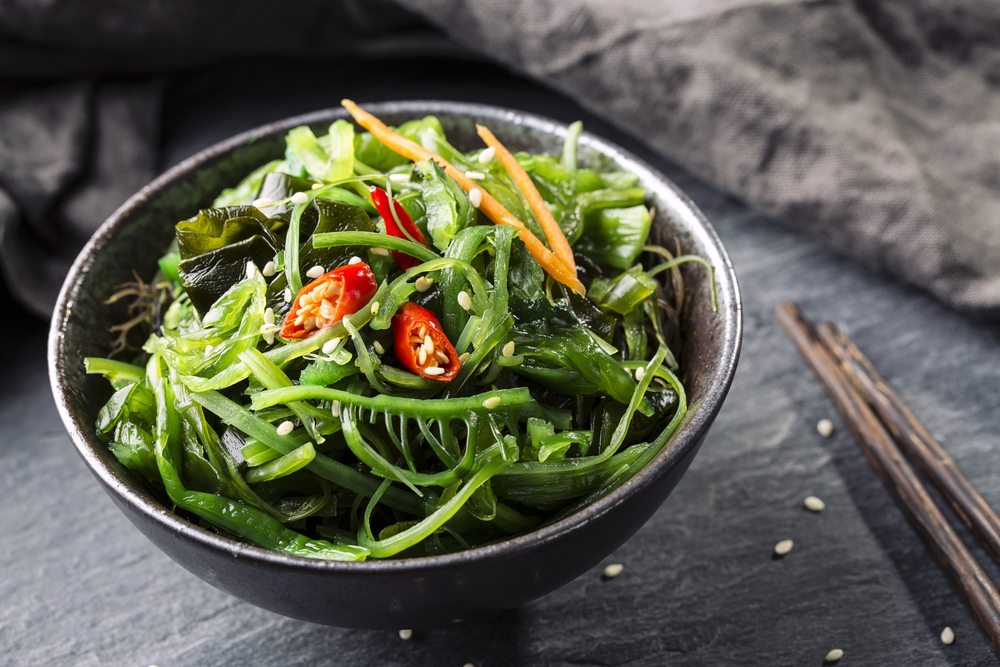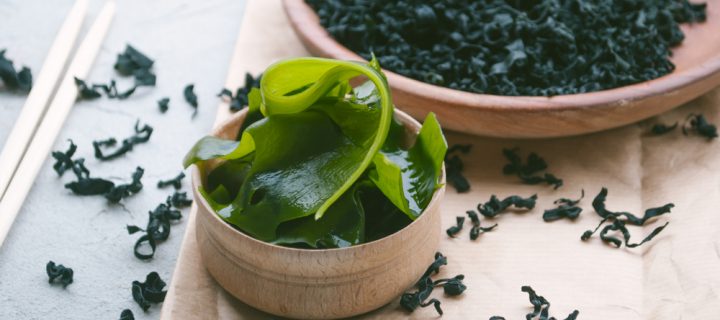Seaweeds are abundant in minerals, many of which we’re severely deficient in.
Sea veggies like kombu, kelp, arame and nori are all rich in chlorophyll, for example, which helps nourish our red blood cells, and has cancer preventative benefits.
Sea vegetables are also a strong source of iron, vitamin C, which supports iron absorption, and B vitamins. They even have excellent fat-burning properties if you’re looking to lose weight. Basically, these small, slightly ocean-tasting engines would be a welcome addition to any diet.

Related: A new ‘super seaweed’ tastes like bacon, and is better for you than kale
Which seaweed variety should you choose?
If you’re shopping for sea vegetables at your local grocery store or Asian supermarket, you’ll likely come across a wide assortment in different varieties and forms – dried in large whole pieces/strands, ground into flakes or powder, or even transformed into noodles.
We suggest opting for organic or cultivated sea veggies, so you know you’re getting the best, natural healthy food option. The Monterey Bay Aquarium’s Seafood Watch program has a full report on farmed seafood as a resource. The Ocean Wise program also has some information about farmed and wild seaweed.
If you’re new to the world of seaweeds, start with something familiar, like nori, which is regularly used in sushi. Alongside arame, it’s the most mild tasting of the bunch. Another great option to ease yourself into seaweeds is wakame, which is excellent in soups. Kombu and kelp are stronger tasting and work well added to stews.
Our final pro seaweed tip: If you like cooking beans, seaweed can help reduce that gassiness.
Photo Credit: maramorosz/Shutterstock.com; Elena Schweitzer/Shutterstock.com












